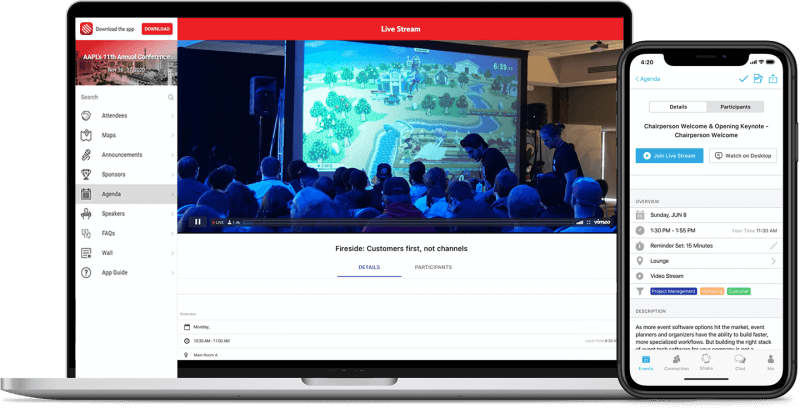Fostering strong relationships with wholesalers will lead to more deals, profits and success.
As a private lender, creating solid relationships with wholesalers is critical to the success of your business. You will gain access to more deals, increase your profits, and grow your reputation within the industry. The more time you dedicate to fostering strong relationships, improving your networking abilities, and building trust with your clients, the more success you’ll have.
Why Partner with Real Estate Wholesalers?
As a private lender, you act either as an individual or on behalf of a non-bank entity providing financing to borrowers for real estate ventures. Spending your day dealing with clients, underwriting transactions, and servicing loans is challenging enough, so why spend time originating the loans as well?
One way to ease your workload and drive additional business to your fund is to work with a real estate wholesaler.
A real estate wholesaler is an individual who transacts with a real estate seller. Instead of purchasing the property, a real estate wholesaler assigns the contract over to a different buyer for an assignment fee. When you partner with a wholesaler, you get access to their network, tap into their large deal flow, and work with their investors on each of their deals.
Real estate wholesalers generally work with fix-and-flip investors operating on distressed properties with heavy renovation budgets. These opportunities generally fall outside the typical credit box of a bank, making it very challenging for investors to find the financing they need. As a private lender, you can work with wholesalers to provide the shortfall financing needed to help investors close on their properties quickly and efficiently.
Vetting a Wholesaler
Sift through the wholesalers that talk a big game but produce lackluster results. Doing so ensures the partnership has a higher likelihood of success.
One of the quickest ways to identify reputable wholesalers is to check their online presence. Do they have real estate investor, real estate agent (or broker), acquisitions specialist, or another industry-related position engrained in their digital marketing material? Although not all wholesalers label themselves as such, if their digital presence does not align with their stated business activities, it could be an initial red flag.
Ask about the wholesaler’s recent track record. How many deals have they closed in the last year or two? What companies or individuals have they closed deals with? How have those assets performed for their investors?
Learning about the investors they have acquired deals with, the markets they operate in, and specific assets they have dealt with can give you more insight about what’s in their pipeline. If they give you the runaround (i.e., won’t provide specifics), then you may want to drill down further before deciding whether they are worth your time. A robust track record should instill confidence about the volume of deals that may come to you.
Even wholesalers who are new to the business may have the drive to outpace more experienced investors. When you evaluate a new wholesaler, aim to understand their mindset about the business. How do they vet the buyers of their deals? How are they underwriting these assets prior to assigning the contracts to other buyers? Where are they planning to source their leads?
How to Create Better Relationships with Wholesalers
Like you as a private lender, wholesalers want to have a solid grasp of the benefits of working together. Here are six ways you can help improve your relationship with real estate wholesalers.
Target your networking. One of the best ways to connect with real estate wholesalers is to attend local or virtual real estate events. This tried-and-true strategy of sending out business cards, mingling at conferences, and setting up virtual or in-person meetings has been around the business world for quite some time.
Although networking might seem elementary, you can implement a number of tactics to help you create valuable relationships. One is to ask targeted questions that can easily be converted into business wins. For example, ask questions like:
- Which states do you operate in?
- Which markets do you prefer?
- What style of funding do you need for your buyers?
- What terms make or break a deal’s viability?
All these questions can help you not only connect with the person you’re networking with but also gain market and funding insights.
Wholesalers have access to a tremendous number of deals, clients, and resources. Many buyers they assign contracts to might be working with a private lender based on ease of access, proximity to the property, or prior experience. If you cut straight to the point and highlight your willingness to close quickly and underwrite effectively, you will surely win over their business and foster a long-lasting relationship.
- Be transparent. One of the more critical factors in building a relationship with a real estate wholesaler is transparency. Successful wholesalers have a deep understanding of their investors’ needs, criteria, and business strategy. It is imperative that you are transparent with your wholesaler about your lending process, fees, and underwriting requirements so they can relay the correct information to their clients.
Wholesalers know the key pain points and hesitancies of their clients. Perhaps they have a large buyer not willing to pay interest rates over 13%. Perhaps the wholesaler works with clients who have suboptimal FICO scores and need to close within three days but would be willing to pay a higher price. Maybe your wholesaler focuses on foreign buyers and would rather work with a private lender that truly understands the legality and tax ramifications of an out-of-country borrower. - Build trust. Building trust is essential for any business relationship. Trust and reputation are built over time through consistent action, clear communication, and honest business practices. Yet it can be destroyed in an instant if it’s abused.
For lenders, this means honoring your terms. If you tell wholesalers you don’t require tax returns, global cash flow statements, and prior real estate experience to qualify, stick to your word. When wholesalers refer their buyers to you, there’s an expectation that you’ve said what you meant. Obviously, if an appraiser reduces a property’s value or pro forma cash flow, the lender has the right to reduce proceeds or increase interest rates. However, if you guarantee non-recourse loans or seven-day closings and then underdeliver, you will not only upset your borrower but also lose the trust of your wholesaler. - Understand their needs. To build a successful relationship with real estate wholesalers, it’s essential to understand both the wholesaler’s needs and their investors’ needs.
Know what type(s) of properties your wholesaler looks for, their target market, and their typical investment style. What is their expectation regarding referral fees, if any? Do they want to be at the center of communication between your firm and the borrower, or would they rather stay on the sidelines?
In terms of the borrower’s needs: Do they buy long-term buy-and-hold investments or short-term Airbnb rentals? Do they source three-bedroom houses or two-bedroom houses? How many bathrooms do they like to work with? What price point do they focus on?
By truly understanding your wholesaler and their clients, you’ll be able to create a catered program or loan product based on their requirements. - Provide fast funding. In the fix-and-flip business, fast funding can make or break a deal. If you can provide funding quickly and seamlessly, wholesalers are more likely to do business with you again.
Wholesalers typically go under contract and look to find a buyer within one to two weeks. As a lender, you’ll need to be able to underwrite the deal, review third-party reports, and qualify a borrower within a short 10–12-day timeframe. Though the actual closing might occur a week or two later, wholesalers—and the end-buyers—will want a commitment to lend as soon as possible.
Consider streamlining your underwriting process using workflow management technology. These software platforms can remind you to provide the borrower with regular updates on the loan approval process via email notifications. Though this might seem obvious, many seasoned lenders lose sight of the importance of an open line of communication when juggling numerous deals at once. Regular communication with your clients ensures underwriting documents don’t fall through the cracks, delaying funding by a few days. - Provide Referrals. Finally, providing referrals is an excellent way to build trust and strengthen relationships with real estate wholesalers and investors. As a lender, you’ll have access to hundreds, if not thousands, of deals across the country. You’ve already originated loans for these investors and know their risk appetite, preferred deal size, and experience level. By referring these clients to your wholesaler, you’ll add to their contact pool and further bolster your relationship with them.
Final Thoughts
Creating better relationships with real estate wholesalers is crucial for private lenders who want to succeed.
Though wholesaling is usually an individual’s entry point into real estate investing, many investors build up a network and continue wholesaling deals throughout their career. Many wholesalers even become mentors to new wholesalers. By maintaining wholesaler relationships and checking in every few months, you’ll get access to deals as well as access to up-and-coming wholesale stars.
You might even want to network with wholesale course leaders and companies that are specifically geared towards training the next generation. Through networking, transparency, building trust, understanding wholesalers’ and investors’ needs, and providing fast funding and referrals, you can build strong and lasting relationships that will reap dividends for years.












Leave A Comment